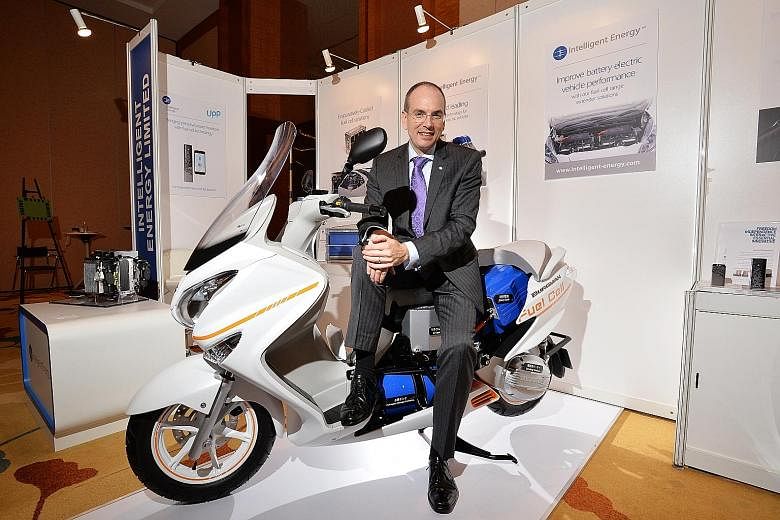Singapore will be supplying key components used in fuel cells - batteries that make electricity using hydrogen fuel and oxygen in the air - which have been used in lunar missions but can also power cars and mobile phones.
British fuel cell specialist Intelligent Energy has entered into agreements with listed companies Manufacturing Integration Technology and Sunningdale to supply the parts - but would not say exactly what those parts are, or when the venture will start.
If it does take off, the move by Intelligent Energy could well be the first of its kind since Rolls-Royce's plans to make fuel cells here in 2005. Rolls-Royce's venture did not materialise and it eventually sold the business to Korean group LG.
Intelligent Energy - part-owned by Singapore sovereign wealth fund GIC - has, over the last two years, set up a regional operational headquarters and logistics coordination centre here.
The company's chief executive, Mr Henri Winand, told The Straits Times yesterday that fuel cell technology is finally at a stage "where we can start making money".
He said that when any new technology is introduced, it will first be greeted with "exuberance", followed by "hope" and then "boring good".
"The 'boring good' stage is when you start launching real products," he said.
Last month, the company signed a £1.2 billion (S$2.6 billion) deal to provide clean power to 27,400 telecom towers in India.
Last year, it launched a fuel-cell phone charger that will keep a smartphone running for a week; and is now working to incorporate the cell into the phone.
It is collaborating with four major vehicle manufacturers to make fuel cell models. Besides Suzuki, which it has worked with for the last decade, Mr Winand would only say the others are Japanese, Asian and European, hinting that the latter's project was a high-performance model with "the grunt of a V8".
And it has just launched fuel cell modules that could be fitted to battery-powered vehicles to double their range.
Automotive companies have experimented with fuel cell models for over 50 years now, but interest fizzled out about 10 years ago.
But in recent years, with rising emission standards, interest has returned, with Toyota, Honda, Volkswagen and Hyundai announcing fuel cell models.
"When Rudolf Diesel first presented the diesel engine, people said it would never work," Mr Winand said. "It was more complicated to make than petrol engines, and the fuel was new."
As for fuel cell cars costing at least twice what conventional cars cost today, the chief executive said "it's a matter of scale", adding that the cost will be competitive between 2018 and 2025.
This, he explained, would be on the back of increasingly stringent emission regulations.
"Dieselgate has crystallised the cost of cleaning up the internal combustion engine," he said, referring to Volkswagen's exposed attempt to meet nitrogen oxide standards for its diesel models by installing a "cheating" software.


